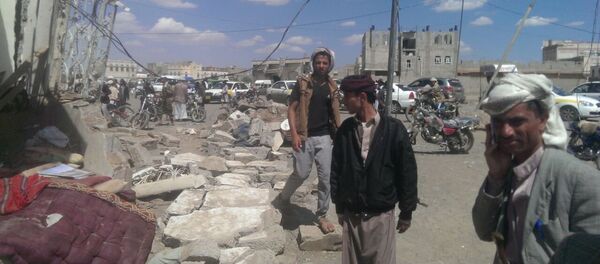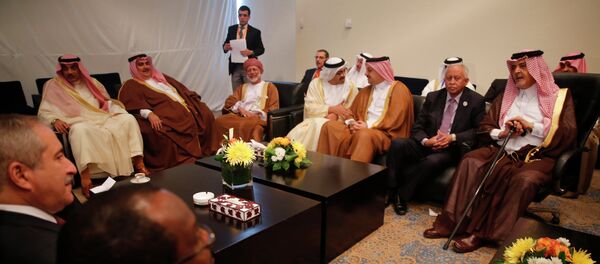“I don’t think there will be boots on the ground, foreign boots on the ground would lose,” Middle East Institute non-resident expert Charles Schmitz said on Thursday.
“The current military operation is having its effect,” Schmitz added as Houthi leader and former Yemeni President Ali Abdallah Saleh called for a halt of the Houthi advance on Aden and a negotiated settlement.
In late January 2015, Shiite Houthi rebels took over Yemen’s government buildings, forcing President Abd Rabbuh Mansur Hadi and his government to resign and flee.
University of Denver Senior Scholar Shaul Gabbay told Sputnik on Thursday that the likelihood of Saudi Arabia deploying ground troops is very low, but its decision whether to deploy would depend on how the Yemen conflict develops.
“I think there is a low probability, but it depends on how things develop on the ground,” Gabbay said. “This is an escalation of the growing conflict between Iran and Saudi Arabia.”
Gabbay explained the Saudis feel threatened by Iran’s attempts to destabilize Yemen through the Iranian-backed Houthis.
Gabbay added the more threatened the Saudis feel, the more effort they will use to put down the Houthis, and is not ruling out the likelihood the situation will turn to armed conflict.
“Not likely now but if things escalate further, that is definitely a possibility,” Gabbay said. “It depends on how events unfold.”
Saudi Arabia sent troops to end the Bahrain uprising in 2011, he noted, where Bahraini protests called for the end of the Hamad bin Isa Al Khalifa monarchy.
Gabbay argued that the Middle Eastern issues must be viewed from a wider perspective, and the reality of the Yemen conflict possibly affecting global oil prices must be taken into account in addition to security challenges. “We’ll see how they balance out,” he said.
Another factor includes the possible lifting of sanctions against Iran based on success and agreement of in the nuclear program negotiations. In such a scenario, there will be an influx of oil supply from Iran, Gabbay concluded.



